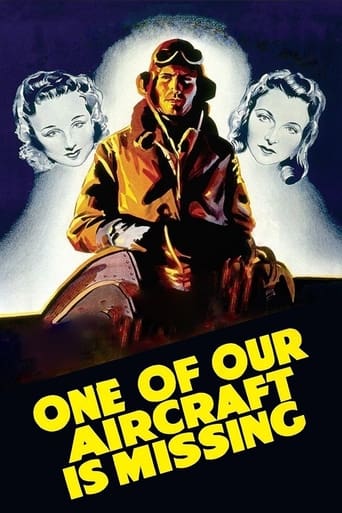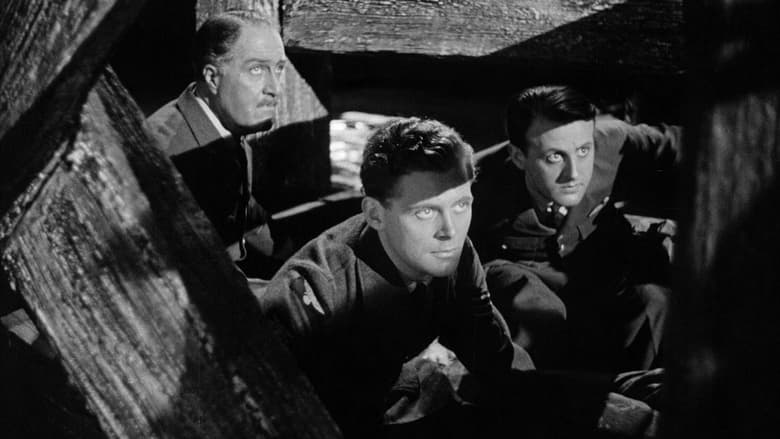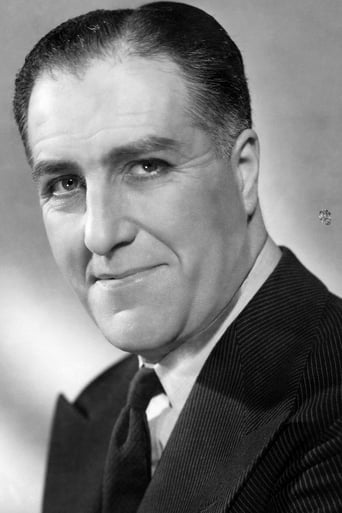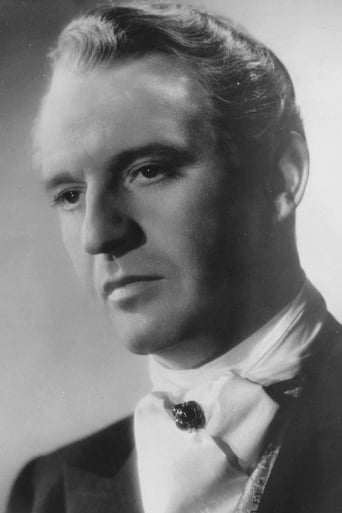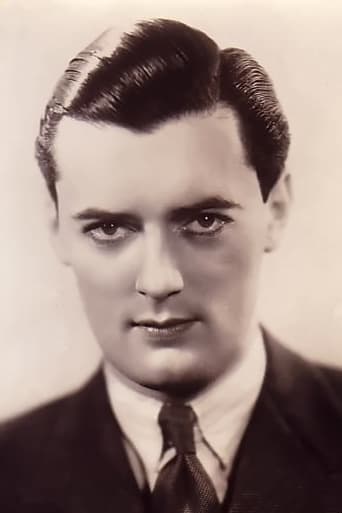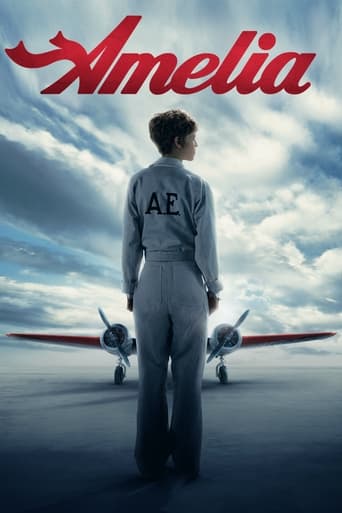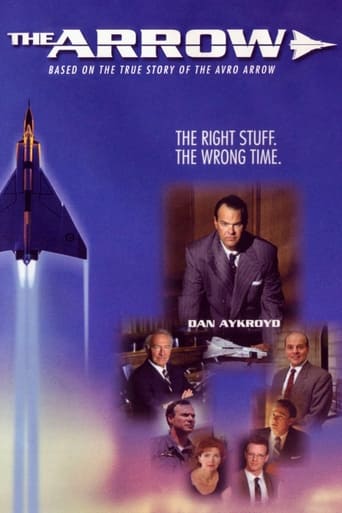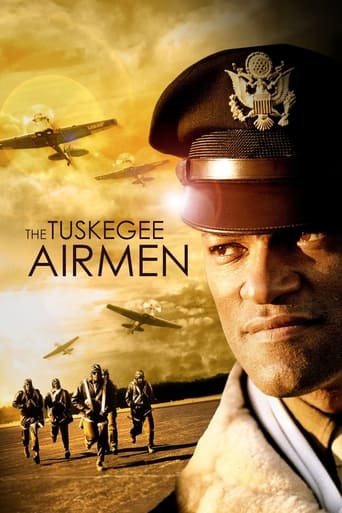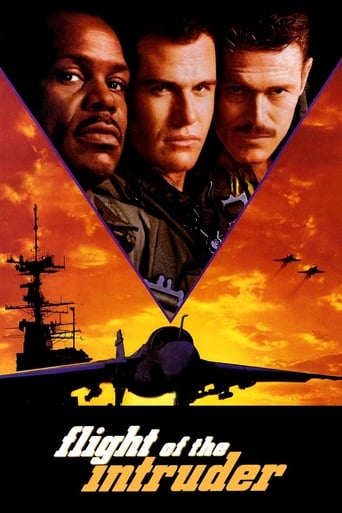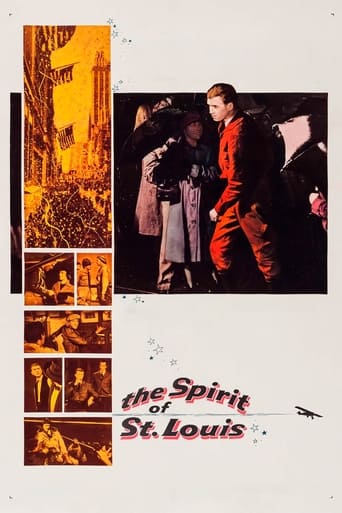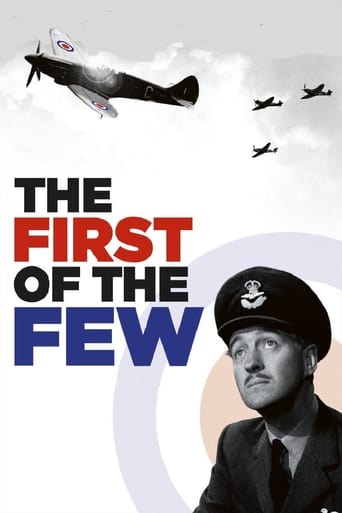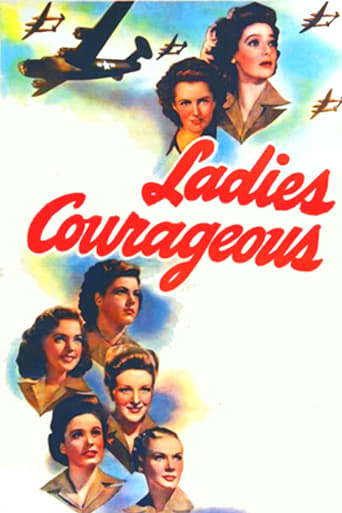One of Our Aircraft Is Missing (1942)
During the Allied Bombing offensive of World War II the public was often informed that "A raid took place last night over ..., One (or often more) of Our Aircraft Is Missing". Behind these sombre words hid tales of death, destruction and derring-do. This is the story of one such bomber crew who were shot down and the brave Dutch patriots who helped them home.
Watch Trailer
Cast
Similar titles

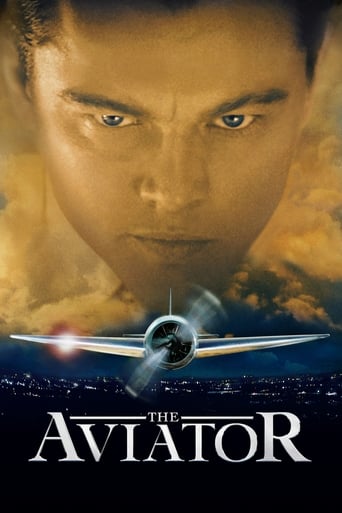

Reviews
Memorable, crazy movie
Beautiful, moving film.
I cannot think of one single thing that I would change about this film. The acting is incomparable, the directing deft, and the writing poignantly brilliant.
All of these films share one commonality, that being a kind of emotional center that humanizes a cast of monsters.
"One of Our Aircraft Is Missing" opens with the announcement of the execution of Dutch civilians by the occupying Germans for aiding the escape of a British airman shot down over Europe. The film then jumps to the crew of Vickers Wellington 'B for Bertie' as they prepare for a bombing run on Stuttgart. The bomber is brought down by German anti-aircraft artillery and the rest of the film follows the crew as they try to escape occupied Europe with the aid of the Dutch underground. The movie is strictly 'vérité', the acting is minimal and realistic, and there is no score. Clearly a 'propaganda' film, the British crew and the Dutch are heroic and resourceful, while the Germans are somewhat incompetent – but that's all part of war-time cinema and does not detract from the overall excellence of the production (especially the special effects used for the bombing raid and the crash of the bomber). The film didn't really benefit from the bit of fisticuffs toward the end but the tough Dutch woman's comments about what to do with the KO'ed Germans suggests some off-screen extra-judicial killing that the movie, regardless of the situation on the home front, would never 'condone'. Overall, a great film from both an entertainment and a historical perspective.
One of Our Aircraft Is Missing, released in 1942, was the first film Michael Powell and Emeric Pressburger made after formalizing their partnership as The Archers, with both taking equal credit for writing, producing and directing. In 1941 they had collaborated on The 49th Parallel. In 1943 they would make The Life and Death of Colonel Blimp, the first of a series of masterpieces they created in the Forties. In practice, Powell directed, Pressburger wrote and did most of the producing, and they closely collaborated on every aspect of their films. The movie tells the story of the crewmen who bailed out of their bomber, B for Bertie, over The Netherlands in 1941. Even more, it tells the story of the Dutch men and women who endangered their own lives to give the crew shelter, to protect them and to pass them on to the North coast of Holland until rescue could be arranged. Bertie, a two-engine bomber, is returning from a run over Stuttgart when it's hit by flak. The plane loses an engine but the crew nurse the plane along until the second engine stutters out over Holland. The six-man crew bail out. Five land together; one is missing. There is John Haggard (Hugh Burden), the pilot and the youngest; Tom Earnshaw (Eric Portman), the co- pilot, a Yorkshire businessman before the war; Frank Shelley (Hugh Williams), the navigator, a West End actor with a famous wife; Bob Ashley (Emrys Jones), the radio operator, a soccer star; Geoff Hickman (Bernard Miles), the front gunner, an owner of an auto garage; and George Corbett (Godfrey Tearle), the rear gunner, at least twenty-five years older than the others, a knight, a member of parliament who immediately signed up with the Royal Air Force when war was declared. The crew, which is shortly reunited, now must trust the men and women of Holland. With one clever ruse after another they finally arrive at a house on the edge of the North Sea, owned by a woman who professes hatred of the English. She runs fishing boats and has the town's German detachment headquartered in her home. Eventually, in the middle of a British bombing attack, she will take them down to her basement, put them in a row boat, have one of her fishing boats meet them and take them to a German rescue buoy bobbing in the middle of the North Sea. There is a radio in the buoy. With a little luck the crew will be picked up by a British ship before a German ship arrives. She has done this before. At each step of the crew's journey through Holland they meet more men and women who will put their lives at risk for the crew. The Dutch know who they are and protect them. The Germans suspect there is a British crew about, but can't find them. We meet a burgomeister (Hay Petrie) whose young son plays a dangerous trick on the Germans, a young priest (Peter Ustinov), a brave church organist (Alec Clunes) and a frightened Dutch collaborator (Robert Helpmann). At each step the situations grow increasingly tense and dangerous. One of Our Aircraft Is Missing is a propaganda movie. It is precisely because Powell and Pressburger were so unwilling to do the ordinary and the expected that it holds up very well nearly 65 years later. For instance... --There is no phony derring do or heroics. The Dutch get the job done in threatening situations, but with bravery that is understated. The crew know their lives depend on these men and women and learn quickly to do as they are told. --We hardly see a German. And we never see a ranting, raving German officer or an enlisted goon. The German threat hangs over the movie, but it is made more effective by being subtle. --The class consciousness of many British war movies, with the officers brave and well bred and the working class enlisted men often used for comic relief, is muted. All members of the crew have their own characteristics. All are members of the same team. --The bravest of the Dutch, the most resourceful and the ones with the iciest nerves, are the women. From Else Meertens (Pamela Brown), a schoolteacher in a small community, to Jo de Vries (Googie Withers), who plays a risky double game with the Germans and owns the fishing boats, it is the women to whom the crew owe their salvation. --There is no musical score. What we hear is wind rushing by, boots marching, the creak of windmills, water lapping at a stone pier and, often, just silence. Only a director as sure of himself as Powell could get away without using music to cue us what to feel. --As tense as many of the situations are, Powell and Pressburger never shy away from humor in unlikely situations. It works because it allows us to know the characters better and to let us catch our breath before another dangerous scene starts. And they are sly. You have to be quick (or read a couple of reviews, which is what I did) to catch at least two puns they throw into the action. --The opening, and especially the closing, is typically quirky and satisfying. I won't even try to describe them. The movie was dedicated to the members of the Dutch resistance. We last see the crew getting ready to board their new bomber, this one a big four-engine job. Their target? Berlin.
With the Second World War at its height, Michael Powell and Emeric Pressburger here made their debut under the title of The Archers with this story of downed Royal Air Force men escaping through occupied Holland.This is first and foremost a propaganda piece, and as such it works well. Pressburger created a story which at turns makes heroes of British soldiers, reassures and bolsters the civilians back home and, typically for the internationalist Pressburger but rare for propaganda pictures in general, pays tribute to the people of occupied Europe. While it would have been mostly aimed at the British public, and the heroes are British airmen, this is really a picture about the Dutch resistance. However the Dutch nationalism in the film does border on the ridiculous at times, such as when a resistance woman comments that she prefers the taste of Dutch water to French champagne.The circumstances of the airmen's escape are extremely tame, it has to be said. Forget Steve McQueen on a motorbike here it's all push-bikes, rowing boats and tea with the vicar. As a result the picture doesn't stand up well as pure entertainment. But it seems as if it's the domesticity and sheer ordinariness that Powell and Pressburger are wanting to stress. This film is as much if not more so about the home front as the western front. It's also interesting that the two main Dutch resistance characters are both female. Something Powell and Pressburger stress throughout their propaganda films is the role of women during the war, an aspect often overlooked in the more gung ho war pictures.Michael Powell's bold and highly cinematic style seems well developed here. Here, even more so than usual in Powell's pictures, the direction is very self-aware and openly pointed at the audience. With the narrative moved along at every turn by text based devices documents revealing the movements of the airmen or the occasional subtitles which directly address the audience and the sweeping, highly-noticeable camera movement, it's almost as if you can feel the director's personality as he guides you through the story. It's the complete opposite of John Ford's "invisible camera" technique, but no less effective in its own way.This picture also has significance for me as featuring the screen debut of my favourite actor Peter Ustinov, here playing a Dutch priest. It's not a huge part, but he gets enough room to make some funny little gestures and facial expressions that are typical of his style. Had he been given much more screen time he could probably could have stolen the film, even at this young age. Aside from Peter the Great, none of the performances really stand out.One of Our Aircraft is Missing is an interesting propaganda piece, but it's a weaker Powell and Pressburger film today. Taken out of the context in which it was made it's not particularly enjoyable. It's probably only really of interest for Powell and Pressburger completists or those who have an interest in the specific ground it covers.
One of the best war films produced World War II, `One of Our Aircraft is Missing' is the product of one of the best British filmmaking teams of the 1940s, Michael Powell and Emeric Pressburger. The makers of such unusual and memorable films as `The Red Shoes' and `Black Narcissus', Powel and Pressburger's films were never like anyone else's. Their approach to a wartime propaganda film was equally different.`One of Our Aircraft is Missing' begins dramatically with the crash of an RAF Vickers Wellington bomber designated `B-For Bertie', and then flashes back to the events leading thereto. The viewer is introduced to the six members of crew, and learns that they had actually bailed out of their crippled aircraft prior to the crash, landing in Nazi-occupied Holland. The remainder of the story describes their escape back to Britain.What makes this film different from the conventional Hollywood treatment of similar subject matter is that `One of Our Aircraft is Missing' stresses the courage and resourcefulness of the Dutch civilians rather than the aircrew. Indeed, it made manifestly clear that the British crew could never have escaped without the assistance of a great many ordinary Dutch people of all ages and both sexes. The characters, both British and Dutch, are all well drawn Surprisingly enough, even the Germans are depicted as not entirely inhuman. `They want to be liked', says one Dutch patriot who has wormed her way into their confidence by posing as a Quisling.From a historical perspective, this film is of interest due to its depiction of RAF Bomber Command operations during the early part of World War II, as well as details of the interior of the famous Wellington Bomber. It is also worth seeing as early example of the work of legendary film director David Lean (`Oliver Twist', `Bridge Over the River Kwai', `Lawrence of Arabia', Doctor Zhivago', Ryan's Daughter', etc), who served as Film Editor. There is also an early performance by a very young (and thin) Peter Ustinov, who acts in Dutch and Latin as well as English. All in all, this film is well worth a look.
